print([ [1, 2], [3, 4]].flatMap{_ in })
- 375,296
- 67
- 796
- 848
- 71
- 5
-
2Replace `_ in` with `$0` and see what happens. – Joakim Danielson Aug 26 '21 at 13:28
1 Answers
One particular overload of flatMap has been deprecated. It's the flatMap method of Sequence with this signature:
func flatMap<ElementOfResult>( _ transform: (Self.Element) throws -> ElementOfResult? ) rethrows -> [ElementOfResult]
And it has been deprecated since Swift 4.1. You can learn more about why it was deprecated by watching episode 10 of Point-Free, “A Tale of Two Flat-Maps”. (That episode is free to watch.)
However, the compiler is forced to pick that deprecated overload of flatMap here.
For the non-deprecated version of flatMap, the transform function must return some type of Sequence. That's the whole point of (non-deprecated) flatMap: each element of the input is turned into some Sequence, and those Sequences are concatenated (flattened) into a single output array.
But your transform returns Void, and Void (which is an alias for the empty tuple, ()) is not a Sequence. So the compiler can't use the non-deprecated flatMap.
The compiler can, however, implicitly promote your transform to return an Optional<Void>, which then lets the compiler use the deprecated flatMap to compile the code.
The correct way to write your statement is to use map instead of flatMap, because you're returning a single value (()) rather than a Sequence:
[[1, 2], [3, 4]].map { _ in }
- 375,296
- 67
- 796
- 848
